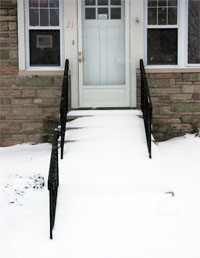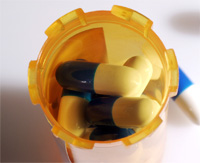Posts Tagged ‘lawyer’
Massachusetts Snow Storm Safety Tips
 In a few hours, a historic snowstorm is forecast to begin, blanketing Boston with 18 inches in many areas and 24 to 32 inches in some regions. Gov. Deval Patrick has urged the public to stay home, and directed non-essential state employees not to report to work. Many schools and offices have closed in response. The MBTA will close at 3:30 this afternoon and may remain shut down through the weekend.
In a few hours, a historic snowstorm is forecast to begin, blanketing Boston with 18 inches in many areas and 24 to 32 inches in some regions. Gov. Deval Patrick has urged the public to stay home, and directed non-essential state employees not to report to work. Many schools and offices have closed in response. The MBTA will close at 3:30 this afternoon and may remain shut down through the weekend.
With a few more hours, here are some tips to prepare yourself:
Have a Plan to Stay in Contact. Whether you live at home with your family or in an apartment on your own, have a plan to communicate with your relatives, landlord and others. Gather phone numbers for snow plow companies, neighbors and local police and fire departments.
Check Your Community Website. Your city or town should post emergency information for residents to follow during the storm, including plans for clearing snow, snow storm accidents and emergency notifications.
Keep in Touch Electronically. Charge your cell phone now and monitor news on TV and the Internet. Another source of information is to dial 2-1-1, the state’s telephone information call center during times of emergency. You can also sign up for electronic alerts from the state on your phone by clicking here.
Social Media. If you are on Facebook, you can follow MEMA, the Massachusetts Emergency Management Agency by visiting its page. If you use Twitter, the hashtag for storm updates is #MAStorm.
Gas Up. The lines at the pump may be long, but if you can, fill your car with gasoline. This will give you a way to charge your cell phone if your home loses power.
Food and Supplies. Make sure you have enough food and supplies to pass the weekend, including bottled water and flashlights. Also make sure you have any medications you may need.
Power Loss. We may lose power so set your appliances and gather supplies accordingly. Set your refrigerator to the coldest setting and have a cooler ready, so you can keep it shut as much as possible during the storm. Food can stay cold in a full refrigerator for up to 24 hours and in a full-packed freezer for 48 hours. Have non-perishable food on hand as well, such as granola bars.
Turn Off TVs and Other Appliances. If we lose power, unplug sensitive electronic equipment such as TVs, microwave ovens and computers. These can cause irregularities when power is restored. Leave a light on so you know power is restored.
Plan for a Heating Loss. Gather blankets and seal off unused rooms by stuffing towels in the space under the doors. At night, cover windows with extra blankets and sheets. Make sure you regularly eat.
Freezing Pipes. If pipes freeze, remove insulation, turn on all faucets and pour hot water over the pipes. With caution, you can also use a hand-held hair dryer on the pipes.
Clearing Snow. Keep up with clearing snow as much as you can in the early hours of the storm and after the storm, follow directions from state and local officials for clearing it from areas such as sidewalks.
Clear Snow from Furnace Pipe. Throughout the storm, make sure your furnace exhaust vents remains clear of snow to avoid a build-up of carbon monoxide in your home. This is essential even when you cannot clear your driveway and other areas because it could result in poisoning.
Related:
Winter Power Outage Safety Tips, Massachusetts Emergency Management Agency.
Read More
Bus Accident Injures More Than 30 Students on Boston Overpass
State Police continue their investigation into last weekend’s bus accident on Soldiers Field Road in Allston, which injured more than 30 passengers.
The Calvary Coach bus, which was carrying approximately 40 students and chaperones from the Philadelphia area, was returning to Pennsylvania Saturday night when the crash occurred. The vehicle reportedly struck the Western Avenue bridge on the road which leads to the Mass Turnpike.
The Boston Fire Department released photos on Twitter showing firefighters standing on the bus and ladders, extricating passengers, some trapped in the vehicle for more than an hour. Several passengers were transported to local hospitals with injuries. At least one 17-year-old remained in critical condition in a Boston hospital on Monday, The Boston Globe reported.
The students were with the Philadelphia area non-profit, Destined for a Dream Foundation, which spent the day visiting Harvard University and Cambridge.
Massachusetts State Police said the bus accident occurred after the driver passed signs posted prohibiting the bus from traveling on that road, which has a 10-foot height limit, according to the Associated Press. State Police are investigating and have not determined whether to file charges or issue a citation against the 66-year-old driver, Samuel J. Jackson. CBS Philadelphia reported that the owner of the company, Ray Talmedge, said Jackson had looked down at his GPS and saw the bridge too late.
Calvary Coach apologized after the bus crash but defended the driver, reported the Boston Herald. The company’s buses have not been involved in a crash in the two years prior to the Boston accident, according to the Federal Motor Carrier Safety Administration. An unidentified driver was written up for unsafe driving.
The state Department of Conservation and Recreation, which maintains Soldiers Field Road, told the Boston Globe it installed rubber signs as a warning for truck drivers. For a period, they also used cowbells to sound an alert, but these were discontinued.
But the Western Avenue bridge never received rubber warning signs, an official with the state agency said. Agency officials told the Boston Herald they would contact GPS navigation companies to ensure the bridge’s height restrictions are recorded.
Related:
Bridge at site of crash lacked height warning, The Boston Globe.
Bus driver may have been distracted by GPS before Soldiers Field Road crash, CBS Boston.
Parents of bus crash victim pray for recovery, Boston Herald.
MassDOT: No plans to raise height of overpass after bus crash, CBS Boston.
Read More
Safety on the Ski Slopes
 For many, winter is a call to the slopes for skiing, snowboarding and sledding. These activities are great fun, from feeling the wind in your face to enjoying the outdoors to spending time with family and friends.
For many, winter is a call to the slopes for skiing, snowboarding and sledding. These activities are great fun, from feeling the wind in your face to enjoying the outdoors to spending time with family and friends.
The fun comes with risks when skiers fail to stay alert and control their speed and equipment. Every year in the U.S., an average of 40 people die in skiing and snowboarding accidents, according to the National Ski Areas Association. Several hundred suffer serious injuries, such as paralysis, head injuries and broken bones.
Our tips for having fun but staying safe:
Wear safety equipment. Helmets are not required by law in Massachusetts and most other states, but wearing one can provide protection in some accidents. If you purchase one, make sure it is specifically designed for skiing and snowboarding and certified by the American Society of Testing and Materials (ASTM) or the Snell Memorial Foundation.
Snowboarders should consider wearing wrist guards. Both skiers and snowboarders should consider goggles for times the snow machines are running or in poor weather conditions.
Use Chair lifts Safely. Pay attention while riding and listen to the ski attendant’s instructions, even if you are a seasoned skier.
Take a Class and Ski at Your Level. Lessons from a qualified instructor will help you control your speed. Staying on trails designed for your experience level is also important to preventing skiing accidents.
Practice Etiquette. Remember skiers in front of you have the right of way. If you overtake another skier, try and announce your action and leave enough room for them to make any voluntary or involuntary movement.
Rest. Injuries are more likely to occur at the end of a ski day or the end of a several-day ski trip. Take a few hours or a day off for rest.
Avoid Distractions. Do not listen to music on headphones while skiing or use your cell phone. You could injure yourself but also others by not being able to respond to conditions.
If You Are Injured. Ask the ski facility in advance how they respond to injuries and what they want you to do if you are injured on the slopes.
Related:
Click here to read about a case in which Breakstone, White & Gluck represented a student who suffered a traumatic brain injury in a ski accident. Attorney Ronald Gluck settled the case for $800,000.
National Safety Week, Jan. 19-27, National Ski Areas Association.
Safety Facts & Tips, National Ski Areas Association.
Bill H.638: An Act relative to ski area operations, Massachusetts Legislature.
Read More
Food Poisoning: New FDA Rules Seek to Prevent Illness, Deaths
 With tens of thousands of Americans sickened by food poisoning each year, the Food and Drug Administration (FDA) is proposing new rules to increase safety in all areas of food production and distribution.
With tens of thousands of Americans sickened by food poisoning each year, the Food and Drug Administration (FDA) is proposing new rules to increase safety in all areas of food production and distribution.
The FDA’s proposed rules are the next step in codifying the Food Safety Modernization Act, which Congress passed in 2010 and President Barack Obama signed into law on Jan. 4, 2011. The agency says its goal is to increase safety by shifting the focus to prevention over response.
The first proposed rule would require manufacturers of processed foods to develop a plan for reducing contamination risk and maintain records for government audit. The second rule would attempt to prevent E. coli contamination of fruits and vegetables during harvest and production.
President Obama has requested $220 million in his 2013 budget to implement the law.
About 48 million Americans – or about one in six – get sick each year from food poisoning, while 128,000 are hospitalized and 3,000 die each year from foodborne diseases, according to the Centers for Disease Control and Prevention (CDC).
Several cases of food contamination have led to recalls and sickened thousands of people resulting in hospitalizations and deaths. In 2011, the country saw the third deadliest food poisoning outbreak in U.S. history and the worst in nearly a century linked to whole cantaloupes from Jensen Farms of Colorado. A total of 33 people died from the Listeria poisoning, and another woman who was pregnant suffered a miscarriage. By mid-2012, the CDC determined that 147 people in 28 states had been infected with one of the five outbreak-associated sub-types of Listeria.
Investigators later attributed the outbreak in part to two brothers who had inherited the farm, changed their packing procedures and substituted in some new equipment and removed an antimicrobial wash.
Related:
F.D.A. Offers Broad New Rules to Fight Food Contamination, The New York Times.
The New FDA Food Safety Modernization Act (FSMA), Food and Drug Administration.
Multistate Outbreak of Listeriosis Linked to Whole Cantaloupes from Jensen Farms, Colorado, Centers for Disease Control and Prevention.
Food Poisoning, Breakstone, White & Gluck.
Read More
FDA Reports Top Consumer Updates of 2012
 Disposal of unused drugs, dangerous diet supplements and contaminated tattoo ink led the health and safety topics which most interested consumers in 2012.
Disposal of unused drugs, dangerous diet supplements and contaminated tattoo ink led the health and safety topics which most interested consumers in 2012.
The Food and Drug Administration (FDA) reported these were among the top 10 most read topics on its Consumer Updates, which can be found on its website and are distributed through e-mail subscriptions.
How to Dispose of Unused Medicines. Consumers should follow any directions on the label for proper disposal. Otherwise, most prescription drugs can be thrown in the trash, unless the directions specify they should be flushed down the toilet. Drugs thrown in the trash should be mixed with substances such as coffee grinds, kitty litter or leftover food. Consumers should also call their city or municipal office and ask about community drug take-back programs that allow the public to bring unused drugs to a central location for safe disposal. Read more.
Mercury Poisoning Linked to Skin Products. Federal health officials warn consumers to beware and avoid use of skin products containing mercury. No product brand name was released, but consumers should check the product ingredients for “mercurous chloride,” “calomel,” “mercuric,” “mercurio,” or “mercury,” and stop using the product immediately. These products are manufactured in other countries and have been illegally sold in the United States. They have been found in at least seven states. Mercury poisoning can cause a wide range of problems, including memory problems, depression, tremors and changes in vision or hearing. You can suffer poisoning through use of these creams, as well as by breathing the vapors if you live with someone who uses one. Read more.
HCG Diet Products Are Illegal. The FDA warns consumers to avoid unsafe “homeopathic” human chorionic gonadotropin (HCG) weight-loss products. HCG is approved by FDA as a prescription drug for the treatment of female infertility and other medical conditions, but is not approved for weight loss or over the counter treatment for any use. Read more.
Warning on Hydroxycut Products. Consumers are urged not to use Hydroxycut products by lovate Health Sciences Inc., of Oakville, Ontario. The company agreed to recall the dietary supplements which were associated with a number of serious liver injuries. They are marketed for weight loss, as fat burners, as energy-enhancers, as low carb diet aids, and for water loss under the Iovate and MuscleTech brand names. Read more.
Examining Arsenic in Rice: A Work in Progress. The FDA is studying the level of arsenics in rice and rice products, which includes rice as well as foods rice is processed into such as cereals, rice beverages and rice cakes. Arsenic levels have been found in various rice products, but the FDA is not recommending consumers stop consumption at this time. It is advising consumers eat a balanced diet containing a wide variety of grains. Read more.
Tattoo Inks Pose Health Risks. The FDA is investigating after contaminated tattoo inks have caused serious infections in at least four states in 2011 and 2012, including in 19 people in New York and others in Iowa, Washington and Colorado. The agency is particularly concerned about a family of bacteria called nontuberculous Mycobacteria (NTM) that has been found in a recent outbreak of illnesses linked to contaminated tattoo inks. M. chelonae, one of several disease-causing NTM species, can cause lung disease, joint infection, eye problems and other organ infections. Read more.
Triclosan: What Consumers Should Know. The FDA has engaged in a comprehensive scientific and regulatory review of triclosan, which has been found in many antibacterial soaps, body washes and toothpastes. The agency is not advising consumers to avoid use at this time, but states those who are concerned should check labels to see if it is contained in products they are using. Read more.
FDA Expands Caution About SimplyThick. The FDA advises that infants may face an increased risk of developing a life-threatening condition if they are fed a thickening product called Simply Thick. The agency has identified 22 infants who have developed necrotizing enterocolitis (NEC) since May 2011, seven of whom have died. It says further study is needed to determine if there is an actual link between the thickening product and the condition. Read more.
FDA Expands Advice on Statin Risks. Consumers who take statins to prevent heart disease are given new recommendations, including that cognitive impairment such as memory loss has been reported by some statin users. The FDA also says routine monitoring of liver enzymes in the blood has been found to be ineffective and is no longer needed. Read more.
Treating Cushing’s Disease in Dogs. An overview of how veterinarians commonly treat the illness and what dog owners should know. Read more.
The Boston personal injury lawyers at Breakstone, White & Gluck are experienced in handling cases involving product defects and medical device recalls. If you have been injured, it is important to learn your rights. Contact our injury lawyers toll-free at 800-379-1244 or 617-723-7676 or use our contact form.
Property Owners Are Responsible for Clearing Snow and Ice
 With snow in the forecast, now is the time to dig out your shovel. Clearing snow from your property has always been the right thing to do, but it is now also a requirement under Massachusetts law.
With snow in the forecast, now is the time to dig out your shovel. Clearing snow from your property has always been the right thing to do, but it is now also a requirement under Massachusetts law.
With the case of Papadopoulos v. Target Corporation, in July 2010 the Supreme Judicial Court abolished the long-standing legal distinction between natural and unnatural accumulations of snow and ice. Property owners are now required to clear both types of snow fall and may be held liable if there is a snow and ice injury on their property.
Here are a few tips from our Boston personal injury lawyers:
Remember to salt. Salt your driveway early in the storm and regularly.
Know how to use your snow blower. Turn it on before the snow fall and read the instructions. In between storms, keep it covered or in a garage.
Remember everyone who travels. You are responsible for clearing driveways, paths and all areas which can be reasonably accessed by invited guests as well as passersby and mail carriers.
Watch for tree branches. If tree branches fall on your property during the snow, consider making cuts before the next storm so no one is hurt.
Hire a snow plow. During heavy snow storms, consider hiring a snow plow.
Clear areas for emergency professionals. Help dig out fire hydrants and storm drains in your neighborhood.
Call about downed wires immediately. If you come across a downed power line, call your police department and ask them to call the utility company. Never attempt to clear the snow around it.
Stay off the streets. In the early hours of a snow storm, pedestrians can interfere with municipal plows.
Read More
Medical Device Recall: Stryker Rejuvenate and ABG II Hip Implants
The year 2012 saw another major hip replacement recall which may require an intensive treatment plan for patients.
In July 2012, Stryker recalled two hip replacements, the Rejuvenate and ABG II modular-neck stems. Stryker initiated the voluntary recall due to the potential risks for fretting and corrosion at the junction of the metal stem and metal neck.
Several months later, product liability lawsuits have been filed in a few states and patients are still learning what the recall may mean for them. The recall came two years after DePuy Orthopedics recalled its all-metal hip implant, the ASR XL Acetabular System, in 2010. A study showed the DePuy hip implant failed in one of eight patients and required they undergo a second surgery within five years – compared to the industry standard of 15.
The DePuy hip implant caused friction between the metallic ball and socket components and injuries such as bone fractures, trouble walking and metallosis, a painful condition which occurs when metallic particles appear in a patient’s blood stream.
With the Stryker recall, the company states the incidence of complications is extremely low and that patients who experience pain and swelling should speak with their surgeon. If a patient does require a second surgery, it may be more complex than in the DePuy recall. The neck stem of Stryker’s hip implant was implanted tightly into the femur bone to stay permanently. There may be potential for complications such as bone fractures.
If you have a Stryker hip implant, you should have been contacted by your surgeon about the recall. If not, you should contact them now as well as an experienced medical device lawyer, who can represent your interests.
Contact an Experienced Hip Implant Recall Lawyer The Boston product liability lawyers at Breakstone, White & Gluck have over 100 years combined experience handling cases involving defective medical devices and pharmaceuticals. If you have been injured, it is important to learn your rights. For a free legal consultation, contact us today toll-free at 800-379-1244 or 617-723-7676 or use our contact form.
Related: Stryker Initiates Voluntary Product Recall of Modular-Neck Stems, Food and Drug Administration.
What to Know About Medical Device Recalls
Medical devices are supposed to improve the quality of a patient’s health. When they are surgically implanted, patients expect an extensive recovery and regular medical check-ups. But no patient should expect the medical device to cause new injuries or to be recalled.
Medical devices are supposed to undergo a rigorous approval process with the Food and Drug Administration (FDA) before going on the market, but some screening fails to identify defective devices. Here are some things every patient using a medical device should be aware of regarding product recalls.
Who is Responsible for a Medical Device Recall? The FDA can legally require a company to recall a medical device. In many cases, however, companies recall their own medical devices.
What Does a Recall Mean? A medical device is recalled when it no longer meets FDA requirements. A recall means a medical device is defective, poses a risk to a person’s health, or both.
A recall may mean the device needs to be removed and replaced. It may also mean the device needs repairs or monitoring.
There are three classes of medical device recalls. A Class I Recall is the most serious and indicates there is a reasonable chance the recalled medical device could cause serious illness or even death.
A Class II Recall means a product may cause temporary health problems. A Class III Recall is the least serious type and occurs when the FDA instructs a manufacturer to make a correction that violates FDA regulations.
What is the 510(k) Approval Process? The FDA approves 90 percent of medical devices under the 510(k) process, including many devices which have been recalled in recent years. These include hip implants, external heart defibrillators and transvaginal mesh.
The process – also called Premarket Notification – was designed to bring new treatments to patients faster. Manufacturers must notify the FDA of their intent to market a medical device at least 90 days in advance. Medical device manufacturers are required to submit premarket notification if they plan to introduce a device for the first time or reintroduce a device that will be significantly changed or modified to the extent that its safety could be affected.
How to Learn About a Medical Device Recall. Your doctor or the medical device manufacturer should notify you. You can visit the manufacturer’s website to check for recall notices. The FDA also maintains an online medical recall database. Finally, large medical device recalls may receive media coverage, which may answer some of your questions.
What to Do When a Medical Device Recall Occurs. You can expect to work with the manufacturer as well as your doctor or surgeon.
You should follow your doctor’s advice, except if he or she asks you to sign a form authorizing the release of your medical records before treatment is undertaken. This would allow your physician to release your medical records directly to the manufacturer. It is not in your best interest to sign the release before speaking to an attorney.
Contact a Boston Medical Device Recall Lawyer. If you have a medical device which has caused you injury – or which you suspect has caused you pain and injury – you should contact an experienced Boston product liability lawyer. You may be entitled to file a lawsuit to recover damages for pain and suffering, medical costs and other expenses. You may also be entitled to damages if a loved one has suffered illness or been killed as a result of a defective medical device.
Medical device recalls are debilitating for patients who have often already suffered physical pain. Recall lawsuits are complex. If you have been injured by a defective medical device, Breakstone, White & Gluck has the experience, expertise and resources to obtain you results in your claim.
For a free legal consultation, contact us today toll-free at 800-379-1244 or 617-723-7676 or use our contact form.
Product Liability: Infant Recliner Recall Sought After 5 Deaths
 A manufacturer of baby recliners involved in five infant deaths is now the target of a lawsuit filed by the Consumer Product Safety Commission (CPSC).
A manufacturer of baby recliners involved in five infant deaths is now the target of a lawsuit filed by the Consumer Product Safety Commission (CPSC).
The CPSC filed a complaint against Baby Matters, LLC of Berwyn, Pennsylvania on Dec. 5 after the company refused to issue a voluntary recall of the Nap Nanny Generation One and Two and Chill models. The CPSC is aware of four infants who have died in Nap Nanny Generation Two recliners and one in a Chill model. It has received over 70 additional reports of children nearly falling out of the defective product.
The CPSC complaint alleges the company’s recliners contain defects in design, warnings and instructions, which pose a substantial risk of injury and death to infants. It seeks an order requiring the firm notify the public of the defect, remove it from store shelves and offer consumers a full refund. The company’s website and media reports state it has gone out of business as a result of its legal costs.
Some 155,000 of the recliners have been sold since 2009. The company sold 5,000 Nap Nanny Generation One models and 50,000 Nap Nanny Generation Two models between 2009 and early 2012. Both are now discontinued. A recall was issued in July 2010 announcing Generation One owners would receive an $80 coupon and improved instructions and warnings to consumers who owned the Generation Two Nap Nanny recliner.
The company developed the Nanny Chill model as an improvement. One hundred thousand Nap Nanny Chill models have been sold since January 2011. The recliners are priced about $130.
The 2010 recall came after the CPSC learned about one death that occurred in a Nap Nanny recliner and received 22 reports of infants hanging or falling out over the side, even though most had been harnessed in.
In a statement on the company’s website, owner/founder Leslie Gudel, said, “We do not believe the complaint has merit and stand behind the safety of our product when used as instructed.”
Later in the statement, she said, “No infant using the Nap Nanny properly has ever suffered an injury requiring medical attention. The Nap Nanny was designed and constructed for use only on the floor with the harness secured.”
Related:
Five infant deaths Prompt CPSC to Sue Manufacturer of Nap Nanny and Chill Infant Recliners, Consumer Product Safety Commission.
A message from Leslie Gudel – owner/founder Nap Nanny
Feds file suit against Nap Nanny maker after 5 infant deaths, 70 complaints, ABC News.
Read More
Gas Explosion: Springfield Recovers as State Investigation Begins
State Fire Marshal Stephen Coan said human error is to blame for the massive gas explosion in Springfield which injured 21 people, damaged three dozen buildings and leveled a night club.
The explosion at Scores Gentlemen’s Club on Worthington Street ignited Friday after Columbia Gas of Massachusetts sent crews to investigate a report of a gas odor. One worker accidentally punctured a gas line at the foundation of the building with a metal probing tool. The company said there were older gas line markings on the nearby sidewalk which were incorrect.
State and local officials held a press conference Sunday and announced Columbia Gas had performed a block-by-block investigation of the area and determined the city’s gas systems are now safe and functioning.
Coan said they have determined the source of the fuel and activities which led to the gas explosion. He said the state Department of Public Utilities will continue the investigation into Columbia Gas related to their response to the incident.
Coan said investigators have not determined the source of the initial odor and may not be able to now that the building is no longer standing. But he said there was no leak of gas from the main in the street.
“We have determined that human error, as opposed to a fault in the gas infrastructure, is what the cause of the explosion was,” he said.
He also said there were too many possible ignition sources inside the multi-story building to identify what had triggered the gas explosion.
Those sent to the hospital include 12 of the 14 Springfield firefighters who initially responded. All have been released. News reports say others injured include gas workers, a water and sewer worker and a local TV cameraman.
Today, residents and business owners gathered at Springfield City Hall carrying lists of lost personal belongings and damaged property. Columbia Gas has promised to cover the expenses, city officials say.
Related:
Springfield explosion cause: ‘Human error,’ Massachusetts fire marshal says, The Republican.
Raw Video: Springfield Gas Explosion, The Boston Globe.
Read More

